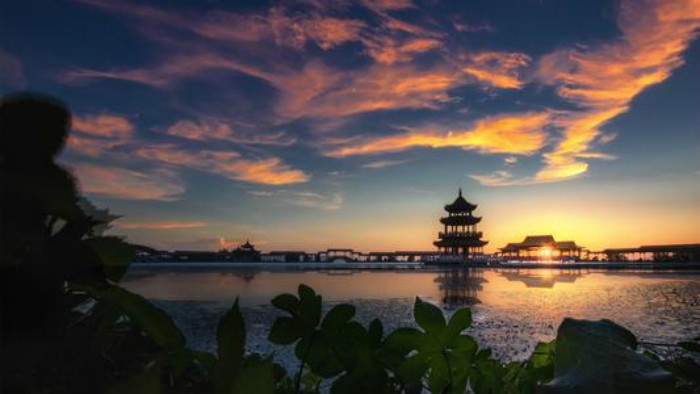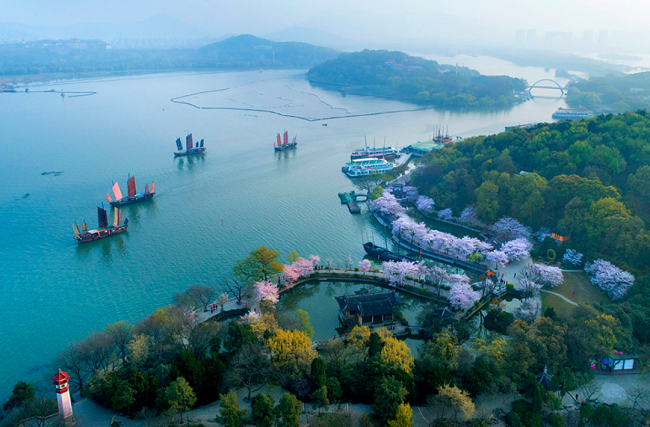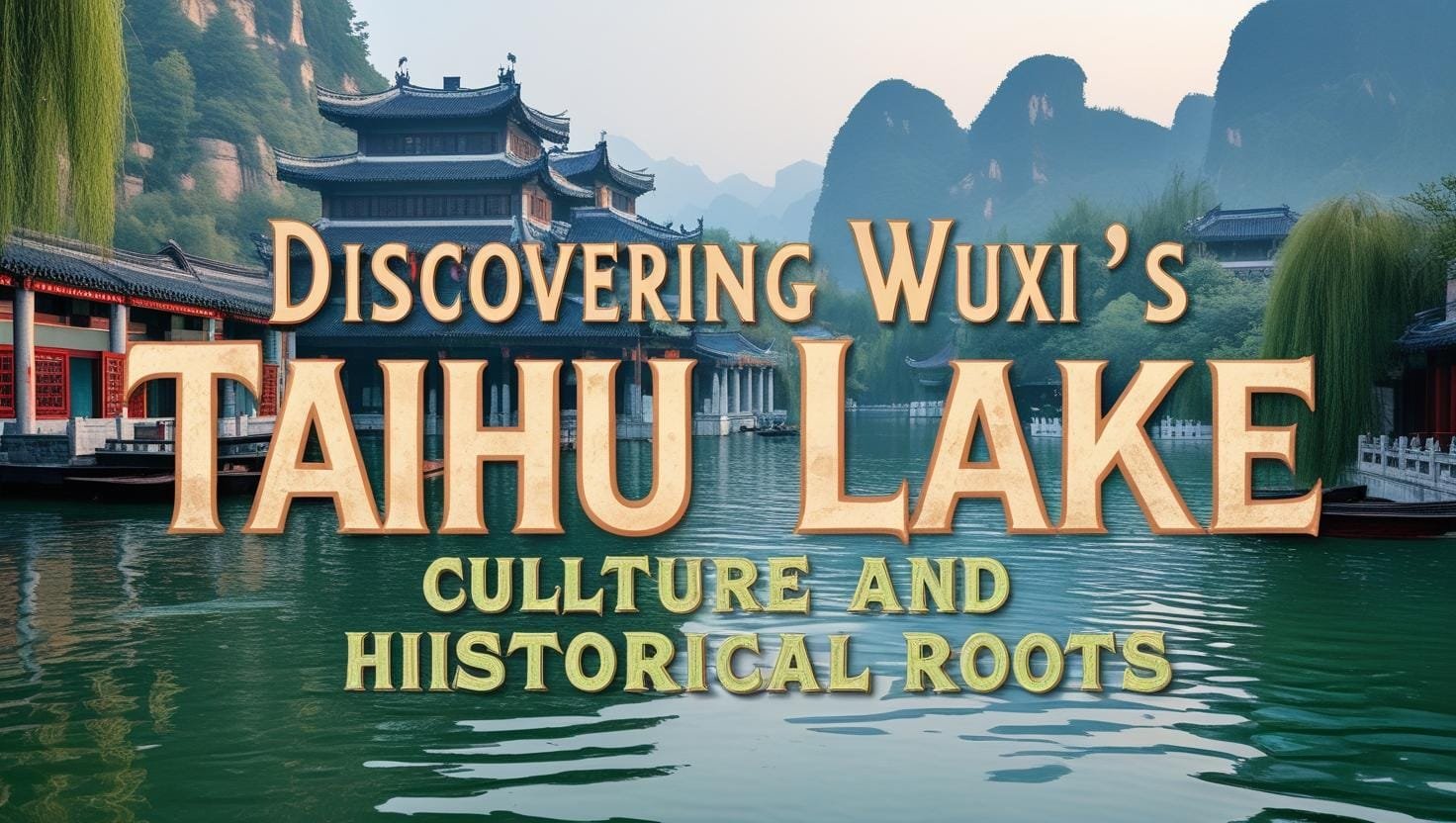Discovering Wuxi’s Taihu Lake Culture and Historical Roots
Welcome to the mesmerizing world of Wuxi Taihu Lake Culture, a hidden gem in China that blends breathtaking natural beauty with rich historical depth. If you’re a traveler eager to explore China lake culture, or a culture enthusiast seeking out cultural attractions in Wuxi, this destination offers an unforgettable journey into the heart of China’s past and present. Taihu Lake, one of the largest freshwater lakes in the country, has shaped Wuxi cultural landmarks and fostered a vibrant heritage that echoes through ancient traditions and modern-day experiences. Here at jusha.travel, we love sharing tips to make your China journey unforgettable, and this guide will help you dive into Wuxi travel guide essentials while uncovering the layers of China history travel. Whether you’re planning your next adventure or simply curious about this fascinating region, let’s embark on a voyage that highlights the enduring spirit of Wuxi.
Geographical and Natural Features of Taihu Lake

Taihu Lake stands as a cornerstone of Wuxi Taihu Lake Culture, captivating visitors with its vast expanse and ecological wonders. Spanning approximately 2,250 square kilometers, this freshwater lake is nestled at the junction of Jiangsu and Zhejiang provinces, with Wuxi proudly positioned on its northern shore [source: Taihu Lake – Suzhou Private Tour]. Its average depth of about 2 meters makes it a serene playground for nature lovers, featuring around 90 islands that dot the waters and create a haven for diverse flora and fauna. https://jusha.travel/discovering-the-breathtaking-national-attractions-in-china-from-iconic-national-parks-to-hidden-scenic-spots/
Imagine strolling along the lake’s picturesque beaches or gazing at seasonal blooms, such as the vibrant hydrangeas on Yuantouzhu Island, which has earned Taihu the status of a national-level scenic spot. This area’s geological story is equally intriguing: While some theories suggest a meteor impact, most evidence points to its evolution from a sea gulf into an inland lake due to ancient river delta growth and sedimentation during the Holocene period [source: Taihu Lake – Suzhou Private Tour]. Historically, Taihu’s connection to the Yangtze River and ancient canals turned it into a vital hub for trade and cultural exchange, influencing the development of China lake culture.
For travelers, practical tips abound: Visit during spring or autumn for milder weather and fewer crowds, and consider a boat tour to fully appreciate the lake’s beauty. If you’re into sustainable travel, note that Taihu supports local fishing communities—think traditional fish traps that have been used for centuries. As part of your Wuxi travel guide, don’t miss pairing this with fresh lake fish dishes, a staple in Wuxi’s cuisine that reflects the region’s resourcefulness and respect for nature. https://jusha.travel/exploring-the-best-hiking-trails-in-china-a-guide-to-adventure-and-natural-wonders/
Wuxi and the Birthplace of Wu Culture

Wuxi, often called the “Pearl of Taihu Lake,” is revered as the cradle of Wu culture, a foundational element of Wuxi Taihu Lake Culture that dates back to the Bronze Age [source: Wuxi: The Pearl of Taihu Lake and the Cradle of Wu Culture]. Emerging during the Spring and Autumn Period (770–476 BC), Wu culture flourished in the states of Wu and Yue, leaving an indelible mark on https://jusha.travel/historical-places-in-china-a-comprehensive-guide-to-ancient-sites-and-cultural-landmarks/ through its customs, dialects, and artistic expressions. Today, this legacy is alive in Wuxi’s classical gardens, intricate architecture, and even local cuisine, offering a window into how ancient traditions continue to thrive.
One highlight is the influence of Wu culture on everyday life, such as in the art of Suzhou Pingtan—a form of storytelling and ballad singing that blends music and narrative [source: Phonologies and Language Use in Bindae]. As you explore cultural attractions in Wuxi, you’ll encounter festivals that celebrate this heritage, like the Dragon Boat Festival. https://jusha.travel/exploring-chinese-festivals-a-guide-to-vibrant-cultural-celebrations-in-china/, where communities race boats on Taihu Lake, symbolizing unity and resilience. These events not only preserve history but also foster a sense of community, making them perfect for immersive cultural experiences.
Travelers should pack a sense of adventure and curiosity—try attending a local performance or sampling Wu-inspired dishes like Taihu Lake shrimp, which highlight the region’s flavors. For those interested in Wuxi cultural landmarks, a visit to sites like the ancient gardens provides insight into philosophical ideals, such as harmony with nature, which are central to Chinese culture.
Ancient Artifacts and Archaeological Sites

Delving deeper into China history travel, the archaeological treasures around Taihu Lake reveal the ancient roots of Wuxi Taihu Lake Culture. This region has yielded remarkable artifacts from the Liangzhu Culture (circa 3300–2000 BC), including ritual jade cong that showcase early advanced societies [source: Taihu Lake – Wuyue Culture in Picturesque Landscapes]. https://jusha.travel/top-10-ancient-towns-in-china-youll-wish-you-visited-sooner/ These findings, along with Bronze Age items like inscribed vessels from the Zhou dynasty, illustrate the area’s role in royal lineages and historical conflicts, such as those between the Wu and Yue states.
A standout artifact is the Sword of Gou Jian, discovered nearby, which symbolizes the rivalries that shaped early Chinese history [source: Taihu Lake – Wuyue Culture in Picturesque Landscapes]. Exploring these sites offers a tangible connection to the past, with preserved ancient villages like Tongli providing glimpses of traditional Jiangnan architecture. For culture enthusiasts, this is a chance to witness how China lake culture has evolved, blending archaeology with storytelling.
Practical advice for visitors: Wear comfortable shoes for site visits and consider guided tours for context—many are available in English. If technology interests you, use apps like those from local museums to scan artifacts for augmented reality experiences, merging ancient history with modern innovation. https://jusha.travel/how-to-navigate-chinas-subway-systems-like-a-pro/
Cultural Landmarks and Heritage Sites

No exploration of Wuxi Taihu Lake Culture is complete without visiting its iconic Wuxi cultural landmarks, which embody the essence of cultural attractions in Wuxi [source: How Is Wuxi’s Taihu Lake Becoming a Must-Visit Destination]. Yuantouzhu, or Turtle Head Isle, is a must-see, famed for its cherry blossom festivals and stunning vistas that draw crowds year-round. https://jusha.travel/exploring-chinese-festivals-a-guide-to-vibrant-cultural-celebrations-in-china/ Another gem is the Ling Shan Grand Buddha, one of China’s tallest statues, representing the spiritual significance of the area.
These sites, along with ancient temples and classical gardens like the Humble Administrator’s Garden in nearby Suzhou, reflect the refined aesthetics of Jiangnan culture [source: Taihu Lake – Wuyue Culture in Picturesque Landscapes]. They offer insights into ancestor worship and traditional philosophies, making them ideal for those interested in China lake culture‘s spiritual dimensions.
As a traveler, plan for interactive experiences—join a tea ceremony in one of the gardens or hike the trails around Taihu for panoramic views. For food lovers, pair your visit with local specialties, like sweet osmanthus-scented treats, which tie into the region’s agricultural heritage.
In conclusion, discovering Wuxi Taihu Lake Culture reveals a tapestry of natural splendor, historical depth, and vibrant traditions that make it a standout in China history travel. From the ecological marvels of Taihu Lake to the enduring legacy of Wu culture and its archaeological wonders, this destination offers endless inspiration for adventurers and cultural seekers alike. By exploring Wuxi cultural landmarks and cultural attractions in Wuxi, you’ll gain a deeper appreciation for how the past shapes the present, all while creating memorable stories for your journey. https://jusha.travel/the-ultimate-guide-to-shenzhen-nightlife-bars-clubs-and-live-music/
Here at jusha.travel, we’re passionate about guiding you through China’s treasures. We hope this Wuxi travel guide has sparked your wanderlust—share your thoughts in the comments below, visit jusha.travel for more in-depth articles, or check out our related posts on other Chinese cultural hotspots. What’s your next China adventure? Let’s keep the conversation going!

